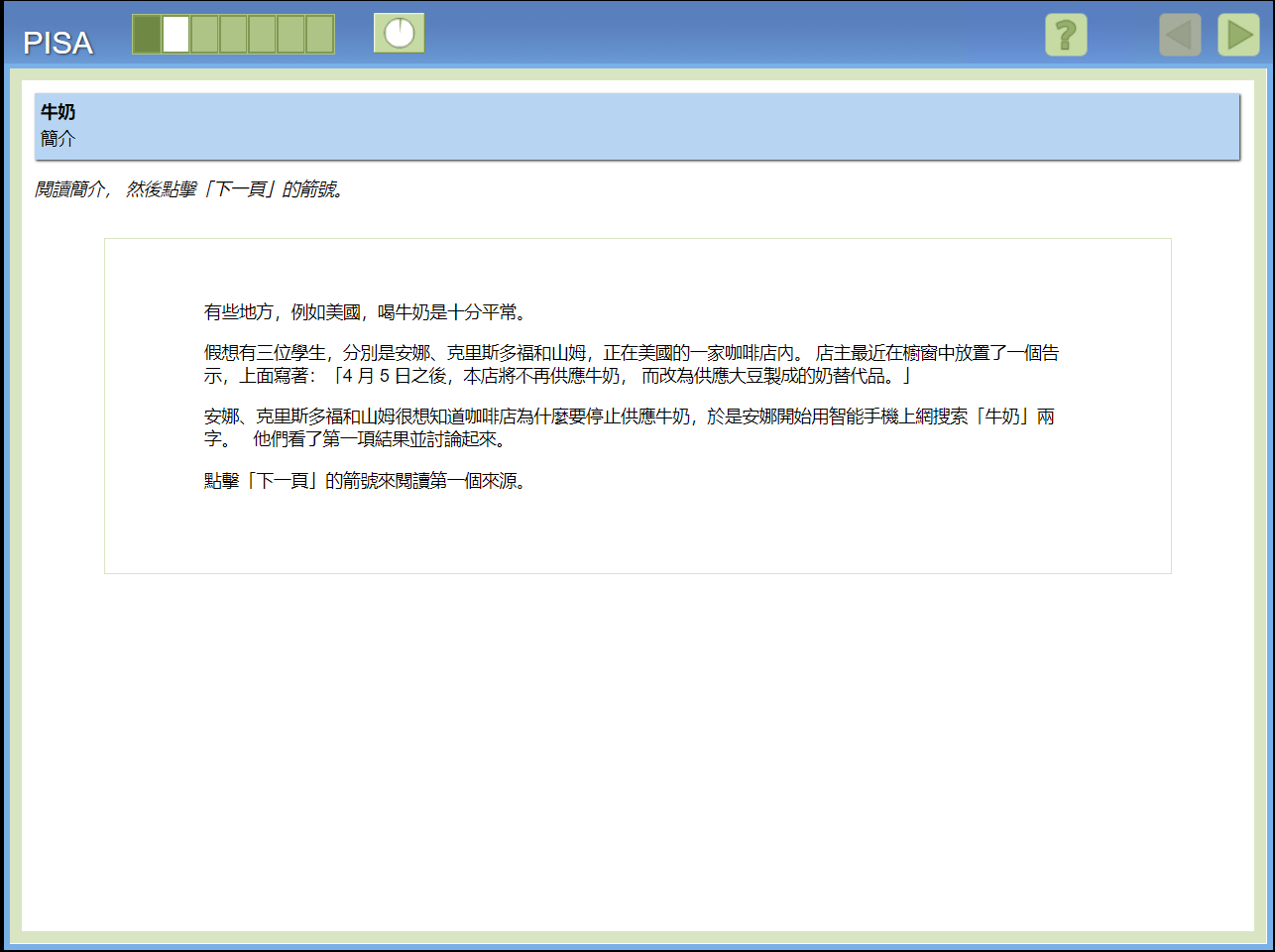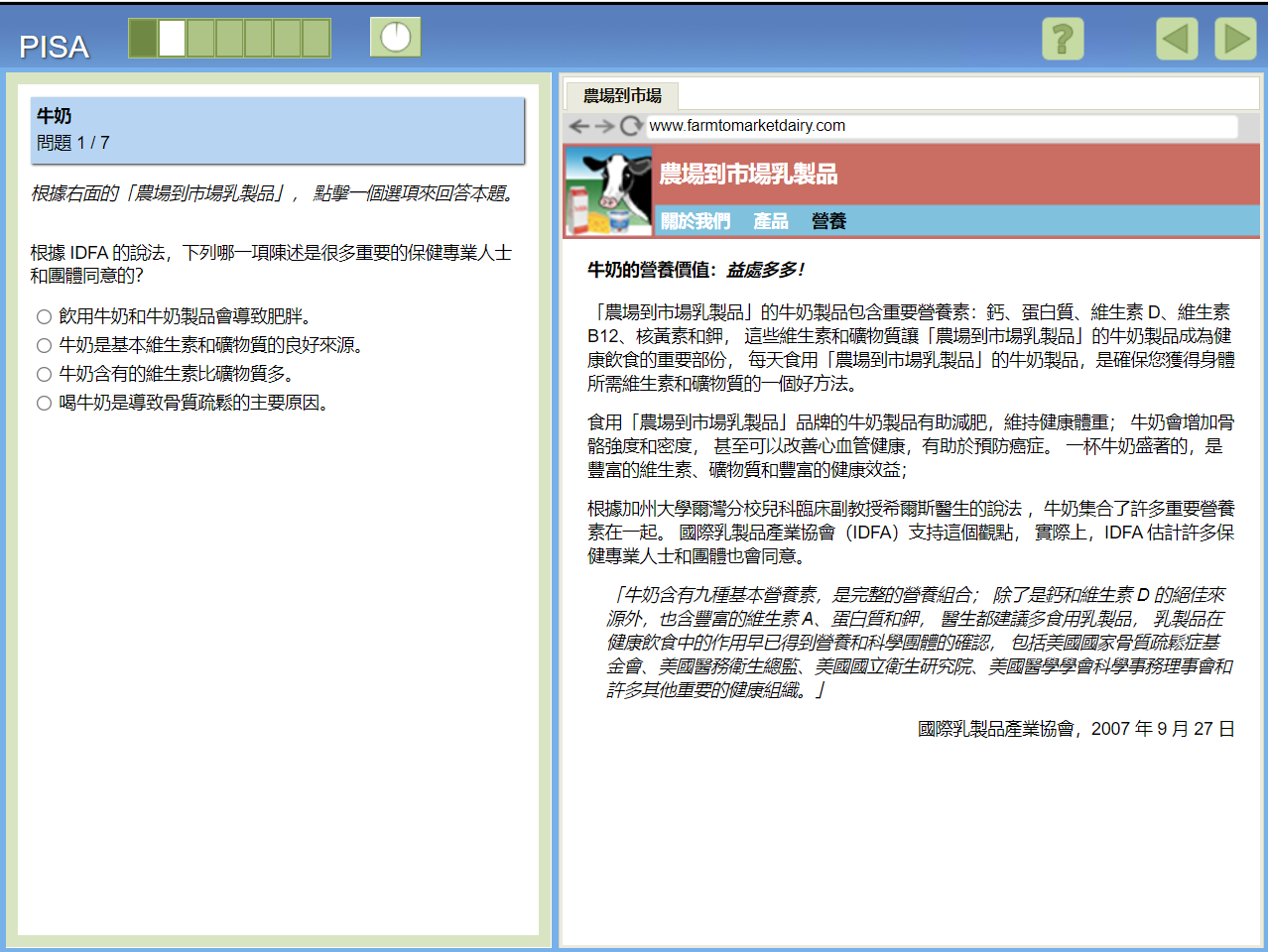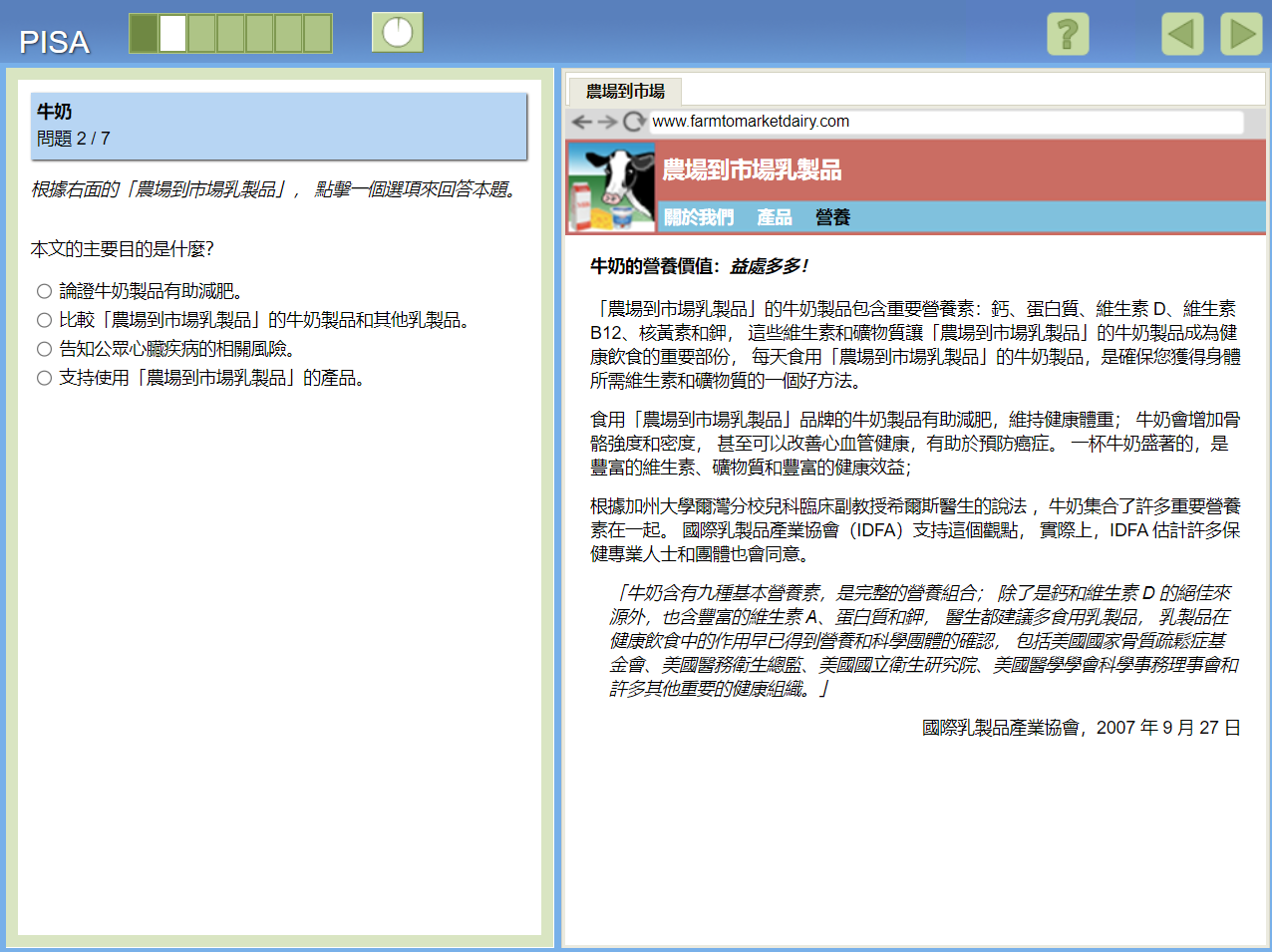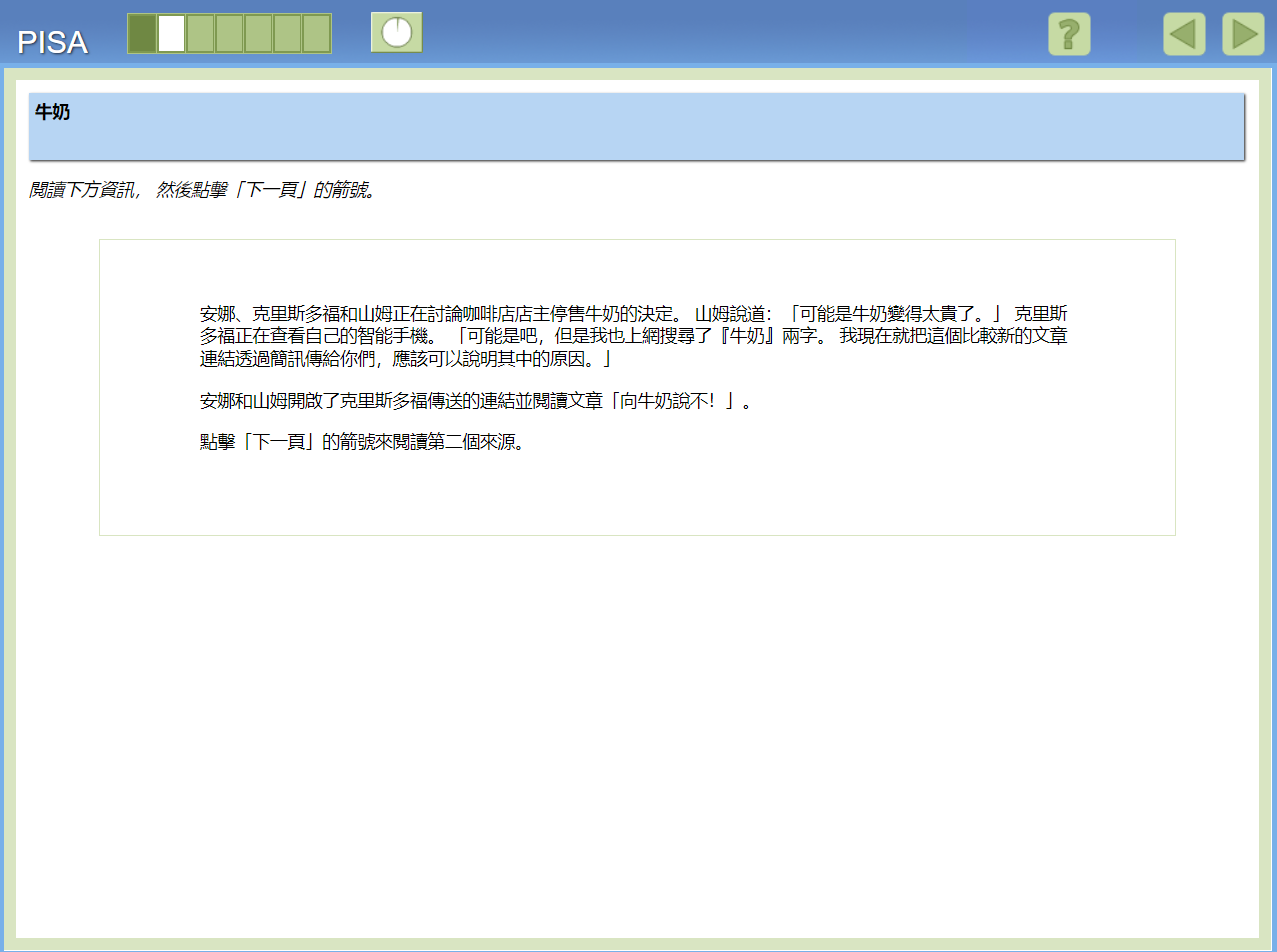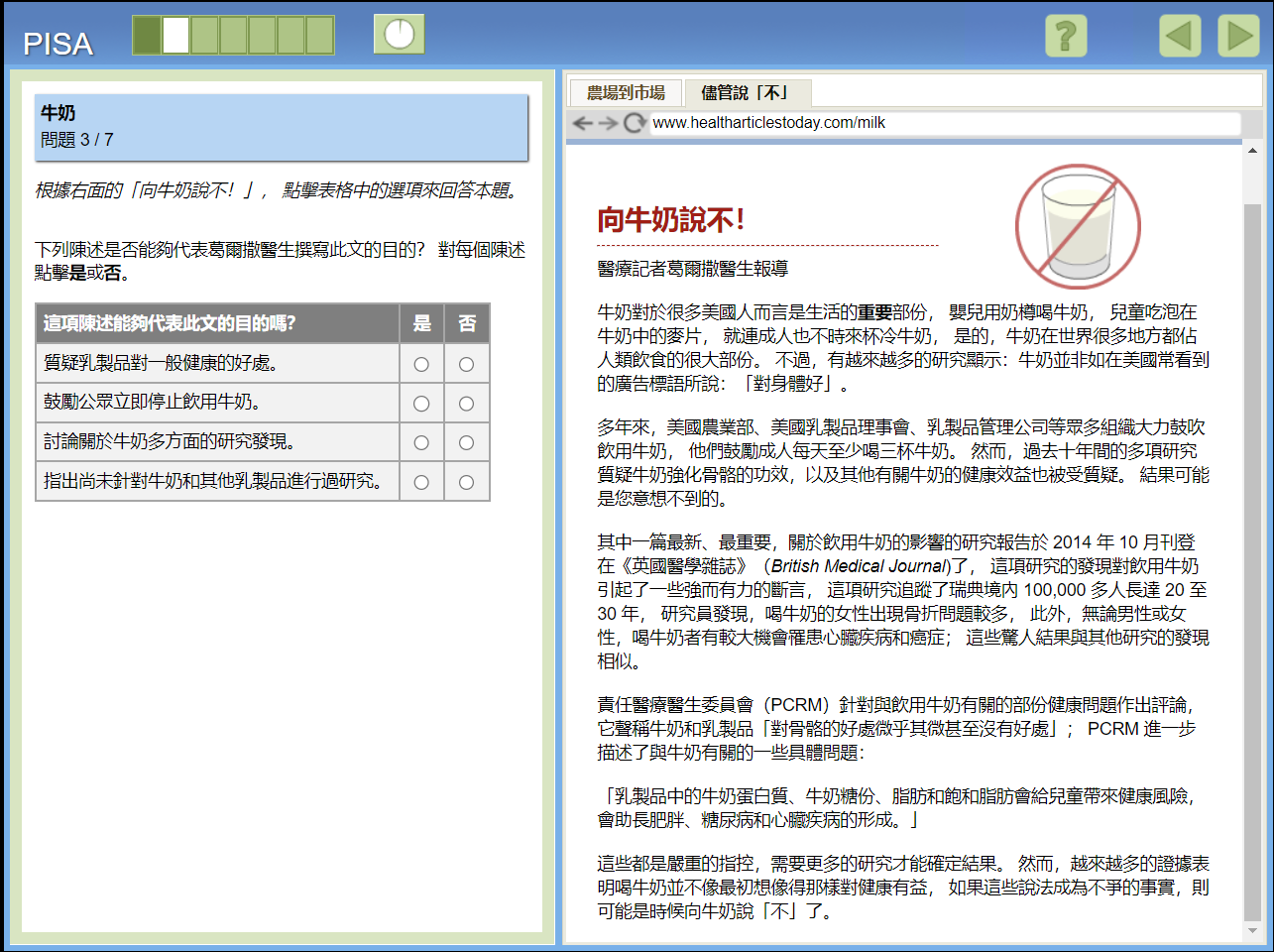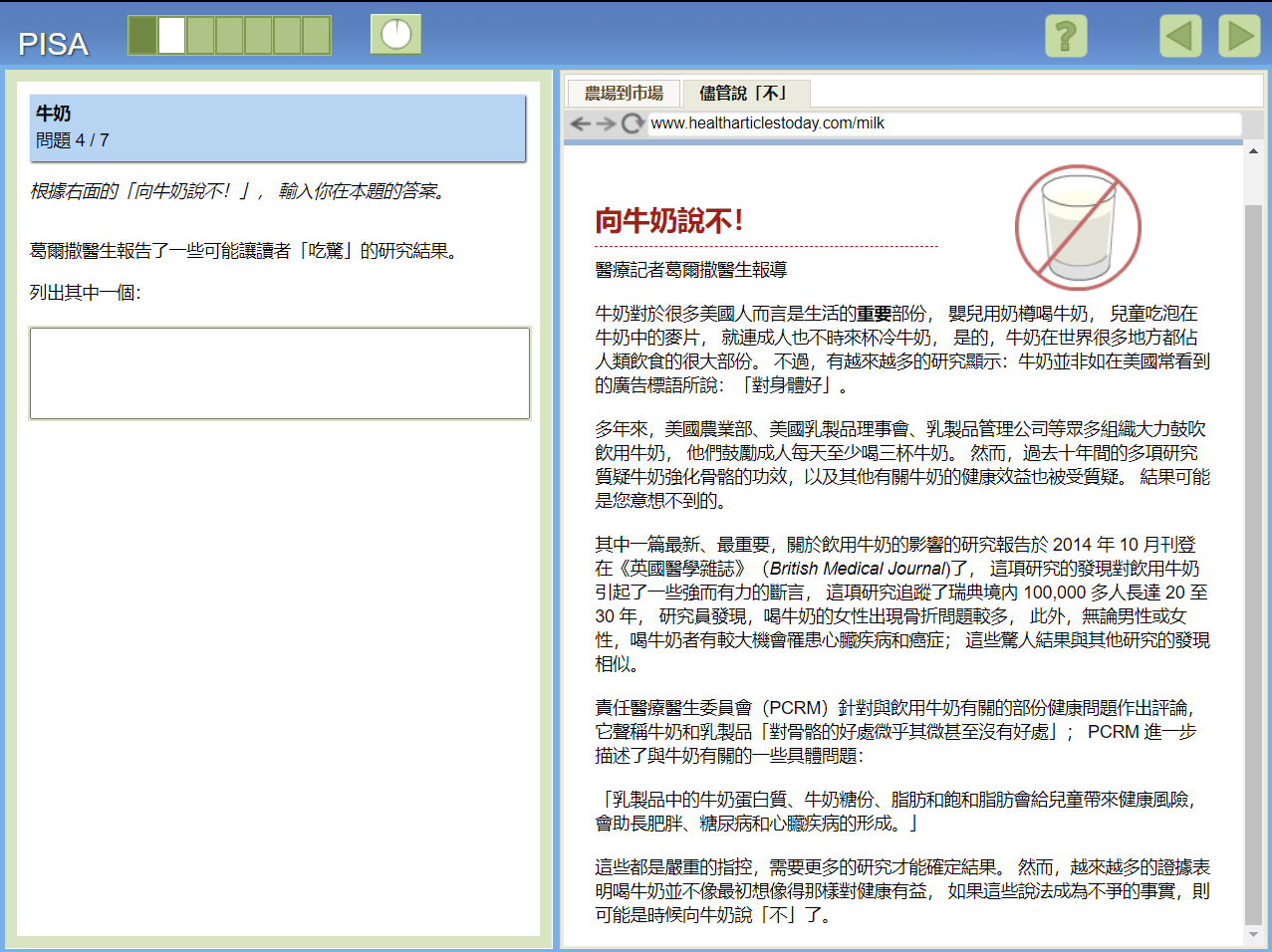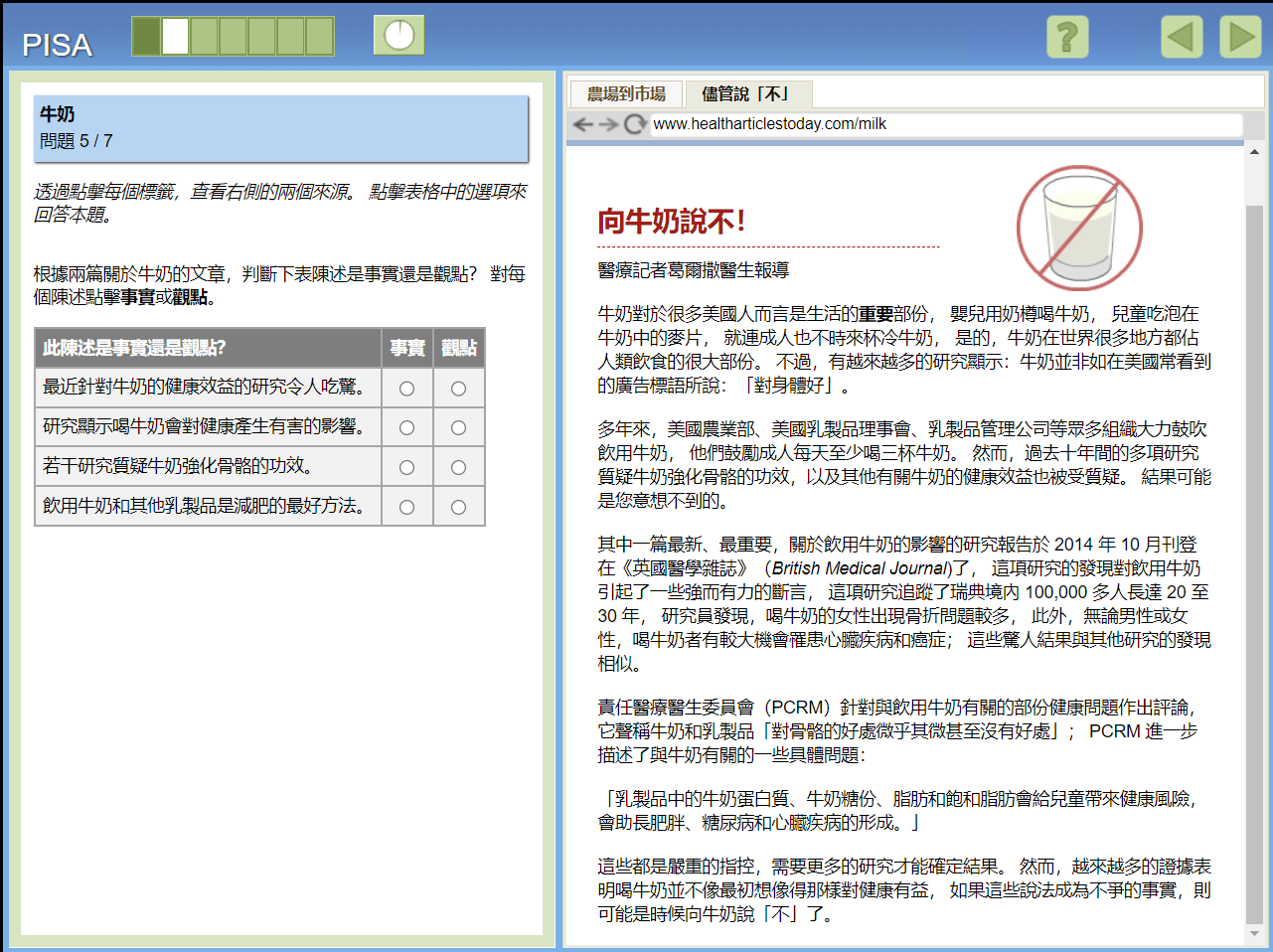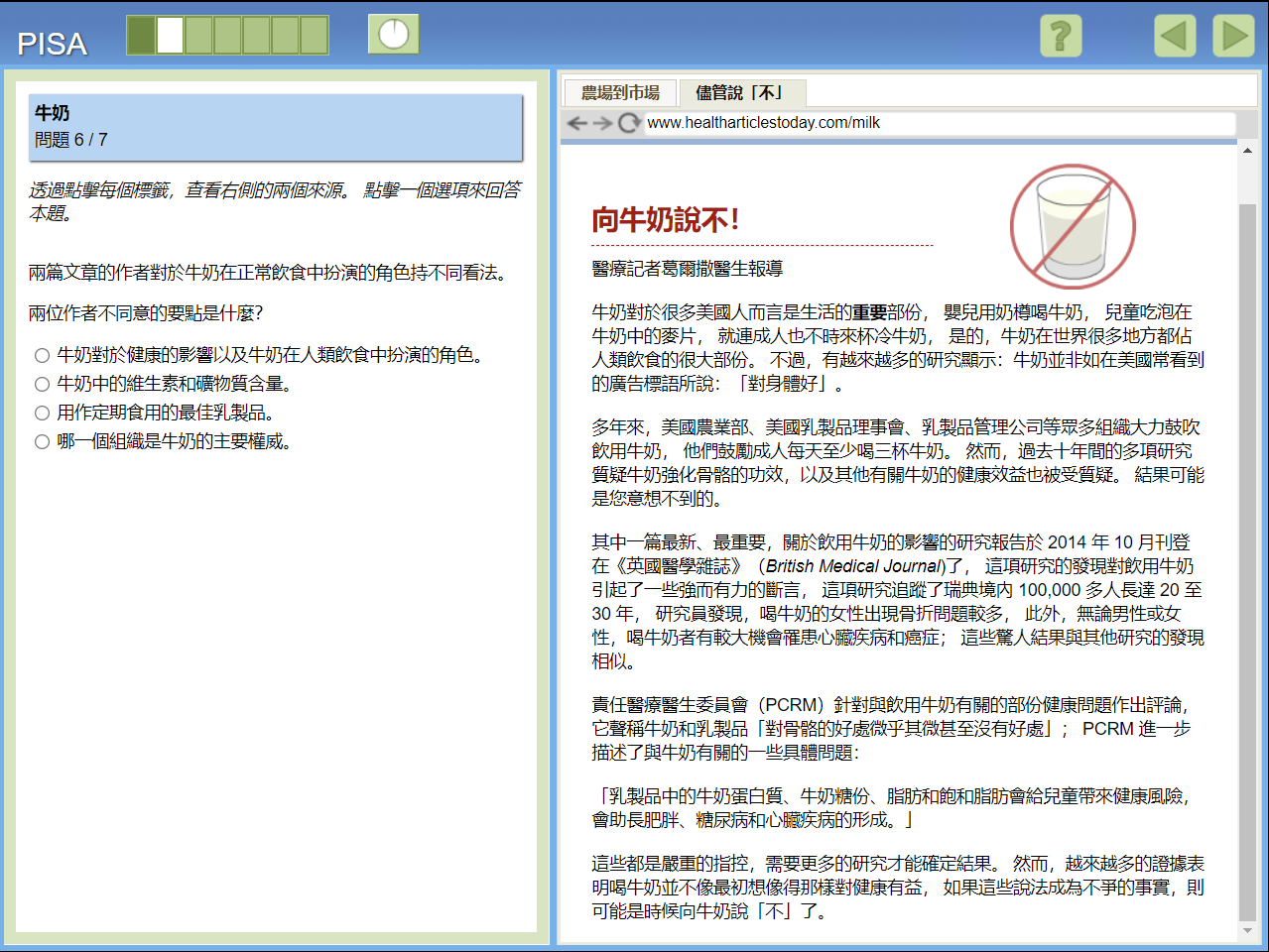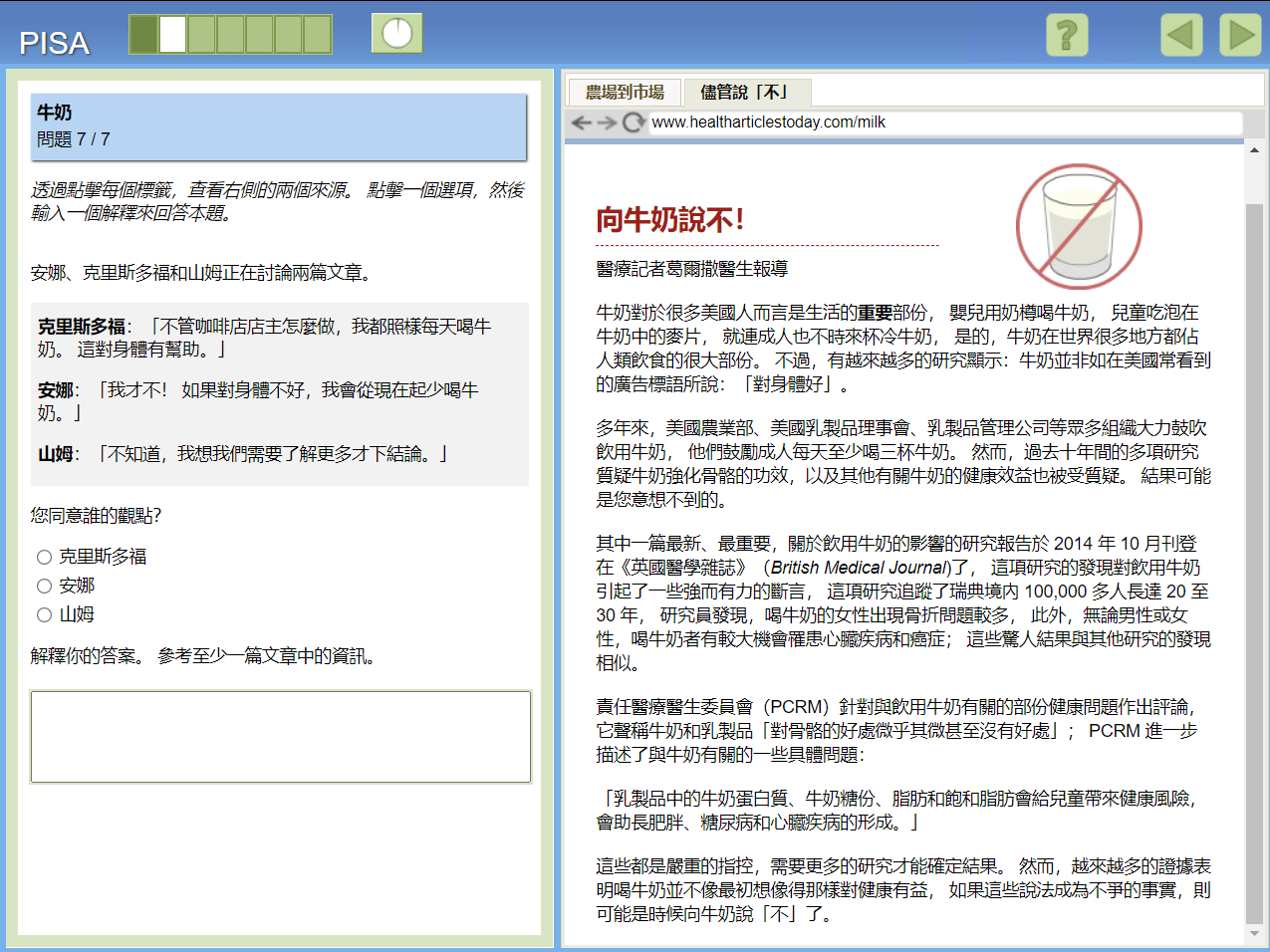Reading Literacy
Reading literacy is understanding, using, evaluating, reflecting on and engaging with texts in order to achieve one’s goals, to develop one’s knowledge and potential, and to participate in society. A capacity to identify information which is relevant, accurate, true requires literacy to triangulate different data sources, navigate through ambiguity, distinguish between fact and opinion, and construct knowledge. This is significant in handling with a variety of written materials. In face of a growing presence of digital texts, and information overflow, changes in the nature of reading literacy are critical. Students will need to be skilled with digital tools in order to successfully manage the increased complexity and quantity of information available.
The PISA 2018 Reading Framework (OECD) conceptualises reading as an activity where the reader interacts with both the text that he or she reads and with the tasks that he or she wants to accomplish during or after reading the text, including digital texts. To be as complete as possible, the assessment covers different types of texts and tasks over a range of difficulty levels. The assessment also requires students to use a variety of processes, or different ways in which they cognitively interact with the text. Skills involved include:
Locating Information
Understanding
Evaluation and Reflection
